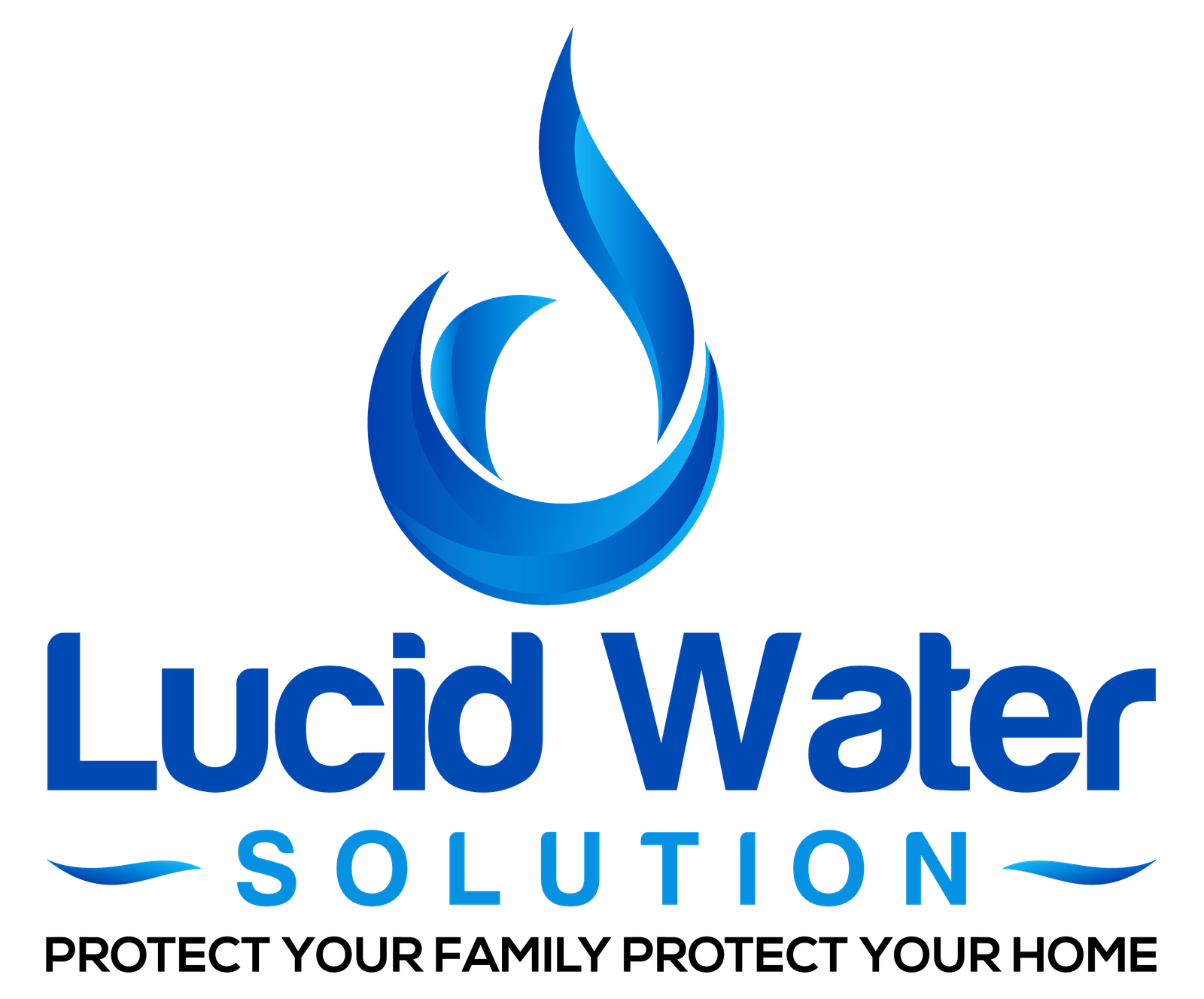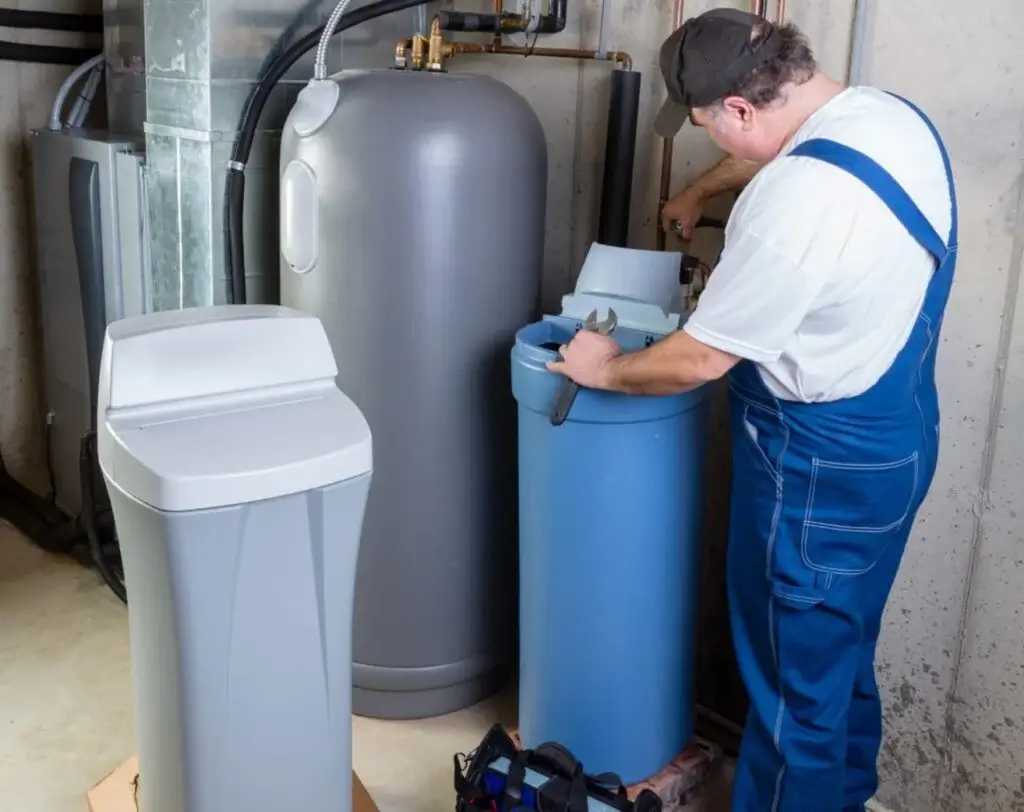Water quality is one of the most important factors in a home for everything from health to the active lifespan of a plumbing fixture. So, at the point you learn about hard water, it is time to start considering a water softener. Just know that installation is not a simple process.
This article will go over the dilemma of whether we do professional installation at all or consider doing it ourselves, the upside to adding a water softener system in a home, and more importantly what to expect when installing a system with Lucid Water Solution
Why You Need a Water Softener
Many places have hard water. Since it contains excess minerals, primarily calcium and magnesium, this leads to a series of problems that include:
- Scale Production: When hard water flows through pipes and appliances, it instigates mineral scale deposition which drastically reduces the life of the pipes and appliances and their efficiencies and repairs or outright replacement of such appliances tends to be very costly later on.
- Skin and Hair Issues: A common consequence of hard water is dryness and irritation, and other skin conditions may be further exacerbated through it. When many people transition to soft water, they often say that their skin is softer and their hair is much more manageable. Using a water softener may help remedy these concerns, but having the water softener installed correctly is an important part of the equation.
Benefits of Professional Water Softener Installation
1. Optimal Performance
Installing a water softener system is a one-shot deal. Professionals have training and experience in setting up home water softeners. If the installation isn’t correct, it would lead to water inadequately softened by not allowing proper functionality. Suppose a unit is installed; it may be small-sized for your home, ie, may not perform according to your household needs if it is not properly sized.
2. Time Savings
If you install a water softener system all by yourself, you will surely have quite a backache and a lot of figuring-out to do if you know little about plumbing. If installation is done correctly, it should save time and spare you from the headache of any troubleshooting that may arise during a DIY approach. What a task it would be for you to have spent hours finding out where the brine line should go and finally getting it wrong! An expert does this efficiently so that you can enjoy your soft water much sooner.
3. Warranty Protection
Different companies ask for a professional water softener installation to honor their warranty. Selecting a reputable name within the industry, such as Lucid Water Solution, guarantees that your warranty will not be empty as your investment is secured. In the event of a system failure or other issues with the installation, you will not have to pay out of pocket to repair something that should have been under warranty.
What Is Water Softener Installation Like?
The First Phase: Consultation
The home water softener installation process begins when you reach out to Lucid Water Solution for your water softener installation. A technician will evaluate your water quality, discuss your requirements, and recommend a suitable system. They will conduct a water hardness test and advise you on the best system for your particular situation to ensure that the best workable solution is created for you.
Installation Process
- Preparation: The technician will prepare the water softener installation site, ensuring that all necessary tools and materials are on hand. This includes the water softener unit, brine tank, and any additional plumbing supplies.
- Removal of Old Systems: In case any water treatment system is present, its safe removal isa prerequisite to setting up a new system. This is an important measure to guarantee no interactions between the old and new systems.
- Plumbing Work: The technician will handle all plumbing work of connection, including major water supply line and drainage work for the brine tank. Proper plumbing is important for the softener to operate well.
- Electrical Connection: The technician will connect your water softener to electricity while making sure everything meets local codes. This assessment will consist of checking to ensure that the electrical supply will be adequate for the water softener’s operational requirements.
- Testing: After the system is installed, testing will be done to establish that the system is operating correctly. This will prove that the system is able to remove hard minerals from the water supply.
- Customer Education: Finally, the technician will educate the owner about the features and operation of th ni e new system and address any of the owner’s concerns or questions. The technician will provide written information so that one may enjoy the full benefits of the new water softener.
The Importance of Regular Maintenance
Once you place a water softener system in your home, even routine checks and maintenance are needed to ensure your system runs effectively. Service companies often have professional technicians to perform the routine maintenance and servicing needed.. Such forward-thinking maintenance ensures that your system supplies soft water and increases its durability. For example, low salt levels and dirty brine tanks can swiftly depreciate the maintenance benefits.
Cost Considerations
Water softener investment is a long-term decision. Initially, the cost of installation might seem high, but savings over time will include costs of cleaning products, energy, and repairs caused by hardwater damage. On average, a homeowner can expect to pay somewhere between $500 and $2,500 for their installation, depending on the system and how complex the setup would need to be.
Comparing DIY vs. Professional Costs
While DIY installations can save money in the beginning, mishaps may occur that are costly to fix if not installed properly. Professional installation may seem pricey now, but the benefits will likely outweigh the costs. What is most important is the peace of mind of knowing the job was done right.
Conclusion
Installation is an integral part of the water softener installation process to ensure the best operation while saving time and effort and enhancing safety. We at Lucid Water Solution will stand beside you each step of the way – from consultation through maintenance services.
FAQs About Water Softener Installation
When is the most suitable time for fitting a water softener?
Install a water softener at the time of remodeling or while moving into a new home to get your plumbing system integrated seamlessly with the appliance.
How long does the installation take to complete?
A professional installation takes about 2 to 4 hours depending on the piping system in your house as well as the augments involved.
Can I install a Water Softener by myself?
It can be done, but getting someone like Lucid Water Solution would mean great quality and a reduced risk of injuries. Mistakes here can be very expensive and annoying to fix.
What maintenance does a water softener require?
Regular maintenance checks should include salt levels and cleaning the brine tank while scheduling a seasonal professional service visit at least once a year. This corrective action should eliminate possible high repair costs and would also ensure that the operations are more efficient in the appliance.

